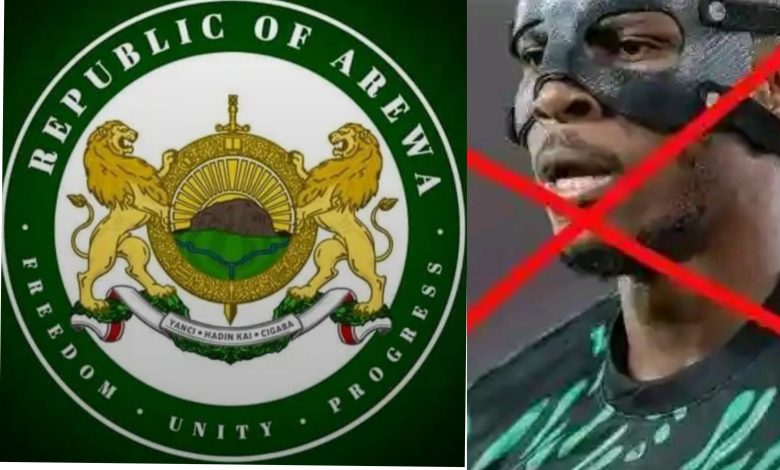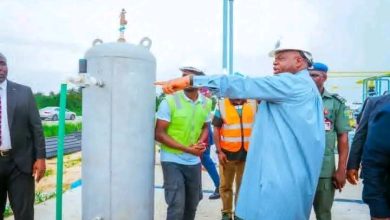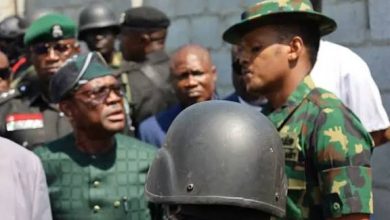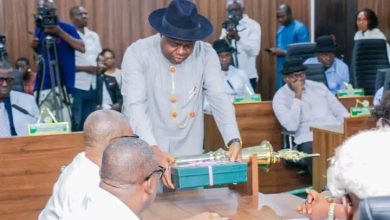
By Passman Akpos
A self-styled secessionist movement known as the Arewa Republic has triggered widespread controversy after releasing a strongly worded social-media statement attacking the Nigerian national football team and endorsing Cameroon ahead of their upcoming match.
In its post, the group accused national team selectors of “nepotism,” alleging that talented players from the northern region are routinely excluded from the Super Eagles. The group argued that this alleged bias has contributed to Nigeria’s recent struggles to qualify for the FIFA World Cup.
Despite claiming that the North has a population of “over 150 million,” the group lamented that “not a single talent” from the region made the squad, insisting that only northern players could revive Nigeria’s footballing fortunes.
The movement further congratulated Cameroon “in advance,” predicting that Nigeria would underperform due to what it called a broken selection process.
The statement went beyond football, tying its grievances to separatist aspirations. It reiterated the group’s goal of actualizing a “Sovereign State of Arewa” by 2030, after which it hopes to field a football team “entirely from the region” to “break records and make history.” It ended with the hashtag #ArewaRepublicNow.
Social Media Erupts With Sharp Reactions
The post immediately ignited heated debate online, with many Nigerians condemning its ethnic undertones and dismissing the group’s claims.
Some commenters mocked the group’s football assertions, insisting that sports should not be dragged into political or ethnic quarrels. Others questioned the logic of linking football selection to calls for secession.
While many criticized the Arewa Republic movement, others took a lighter tone, joking about the absurdity of the statement and turning the conversation into a stream of humorous banter—typical of Nigeria’s vibrant online culture.
A few users attempted to counter the narrative factually, pointing out that numerous northern footballers—such as Tijani Babangida, Garba Lawal, Ahmed Musa, and Daniel Amokachi—have not only played for the Super Eagles but also excelled and captained the national team at various times.
Authorities Yet to Respond
As of press time, neither the Nigeria Football Federation (NFF) nor security authorities have issued an official response to the group’s inflammatory message.
Meanwhile, analysts warn that political rhetoric creeping into sports—one of Nigeria’s most unifying institutions—could inflame tensions. Many citizens have called for restraint, urging Nigerians to ensure that football remains a symbol of national cohesion rather than division.





